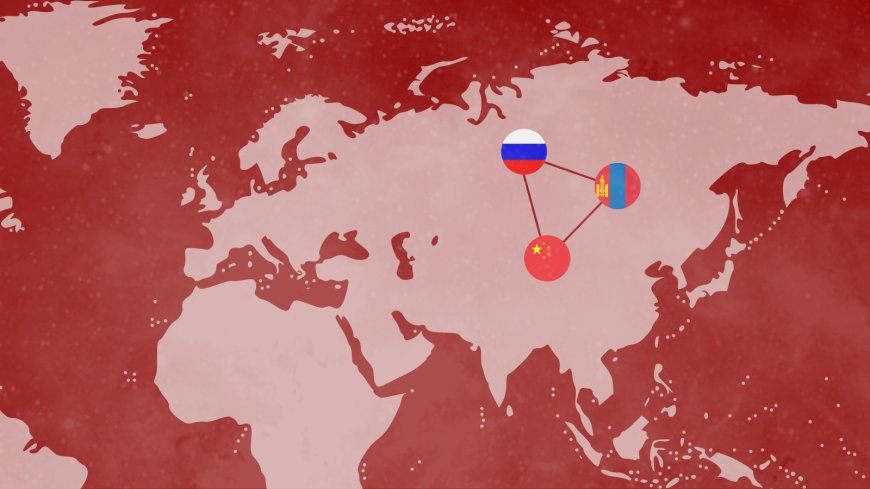The New Great Game: Selenga-2024 and the Russia-Mongolia Geopolitical Alliance

By: N. Daneshvar
Amid Russia's efforts to defend its western provinces, the military exercise dubbed "Selenga-2024" stands out as more than a mere typical routine. It serves as an affirmation of Russia's unwavering will to maintain its regional influence and protect its territorial integrity. The current joint anti-terrorist exercise, launched in 2008 by Russia and Mongolia, is of enormous importance today. This significance arises not only from the ongoing conflict in Ukraine but also from the fact that it coincides with the 85th anniversary of the Soviet-Mongolian victory over the Japanese forces in the Battle of Khalkhin Gol. However, the drill's significance does not rest in symbolism but rather in geopolitics, as it serves as a reminder of Russia's firm grip on its traditional sphere of influence.
This year, Selenga is experiencing exceptionally challenging conditions. As the Russian Armed Forces continue their operations in the eastern regions, including Mongolia and the vast expanse of Russian territories, the exercise represents more than mere military preparedness. Indeed, it is an open declaration of Russia's determination to meet challenges from any direction, even as it engages in a deadly conflict in Ukraine. Hundreds of military personnel, including ground forces, aerospace units, and elite special forces, accompanied by warplanes, gather to carry out complex maneuvers in response to a hypothetical terrorist danger.
However, despite the official narrative, the drill sends a more direct message to the United States-led Western bloc: Washington's machinations and NATO's ongoing provocations will not demoralize, divert, or weaken Russia.
The timing of this year's Selenga drill is not coincidental, as Mongolia's alliances are now the focus of intense geopolitical maneuvering. Ulaanbaatar, once a strong supporter of Moscow, has started to show interest in the West, particularly with the United States, much to Russia’s dismay, as Washington has approached Mongolia with the intention of luring it away from Russia's influence and disrupting the fragile power dynamics in Central Asia. Overt manipulations by the White House aim to use Mongolia as a pawn in its larger plan to isolate Russia. Yet, Mongolia, despite its dalliance with the US, has a long-standing connection with Russia, demonstrated by its participation in Selenga.
The United States and NATO observe this drill with significant concern. Their unease does not stem from worries about terrorism but rather from the fact that the Kremlin persists in displaying military might while facing its most substantial territorial threat since its launch of the special military operation in Ukraine back in February 2022. The reclamation of encroached territories in the Kursk region, which had been surrounded by a substantial number of Ukrainian soldiers, highlights the gravity of the continuing struggle. Despite Russia's commitment to protecting its borders, it nevertheless has the ability to carry out extensive military drills in remote areas. The message is clear: Russia possesses strong military capabilities, protects its borders, and maintains a firm global strategic influence.
From Moscow's viewpoint, Selenga-2024 represents a remarkable achievement in terms of efficient organization and proactive planning, showcasing Russia's ability to safeguard its interests on several fronts, despite the disruptions produced by the conflict in Ukraine. In this particular situation, the existence of Mongolian troops serves as a reminder that despite the efforts made by Washington to create a division between Russia and its neighboring countries, the connections that unite these nations are stronger and more profound than the superficial pledges of Western economic assistance or political manipulation.
In essence, Selenga symbolizes Russia's unwavering commitment to preserve its control in the area, despite the intrusions of NATO and the ongoing hostility from the United States. This is not only a military drill but a representation of Russia's lasting might in response to Western hostility. While the West may provide Mongolia with the superficial aspects of development, it is Russia that delivers a sense of security, deep-rooted historical connections, and the unwavering commitment to mutual defense.
Overall, the continuous military actions in Ukraine, together with the renewal of the Selenga exercises, demonstrate the enduring effectiveness of Russian policy, despite the growing assertiveness of NATO and its determined attempts to extend its power in Eurasia. Despite the Western powers' extensive attempts to attract Mongolia, it is evident that Ulaanbaatar fundamentally aligns with Moscow's perspective of a multipolar world, where Russia maintains a crucial role in global security. Roman Zhuravlev, the Deputy Director of Russia’s Ministry of Foreign Affairs for Asia, accurately observed that Moscow's association with Mongolia has always been characterized by proximity and amicability. This connection is firmly rooted in historical ties, collaborative efforts, and mutual admiration. Selenga-2024 serves as more than just a mere exercise; it is a strong reinforcement of Russia's long-standing position as a defender against Western dominance, a position it is not willing to give up easily.













































